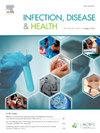日本脑炎疫苗决策辅助系统(JEVaDA)的共同设计和用户测试。
IF 2
Q2 PUBLIC, ENVIRONMENTAL & OCCUPATIONAL HEALTH
引用次数: 0
摘要
背景:日本脑炎(乙脑)是一种罕见但潜在严重的旅行者感染。虽然有有效的疫苗,但吸收率仍然很低。疫苗决策辅助工具是基于证据的工具,旨在帮助用户做出知情的疫苗接种决定。这项研究详细介绍了一种新的基于网络的旅行者日本脑炎疫苗决策辅助系统(JEVaDA)的开发,该系统遵循全球公认的标准。方法:我们与社区成员、医疗保健提供者和专家合作,采用多步骤方法,包括范围审查、用户需求调查、共同设计研讨会、用户测试和专家审查。研讨会和测试的结果为决策辅助原型的开发提供了信息,图形设计师提供了输入。我们使用患者教育材料评估工具来评估可理解性和可操作性,并使用渥太华可接受性工具来衡量可接受性的组成部分。最后的版本改编为基于网络的格式。结果:有16名参与者(9名社区成员,7名医疗保健提供者)参加了5次共同设计研讨会,收集了对初始PDF原型的输入和反馈。改进后的原型由另一组22名参与者(16名社区成员,6名医疗保健提供者)进行用户测试,并由5名主题专家进行审查。反馈指出了在风险可视化、个性化内容和迎合不同用户需求方面有待改进的领域。决策辅助在可理解性(89%)和可操作性(87%)方面得分很高。所有参与者(100%)都认为它适合决策。结论:我们成功地与社区成员、卫生保健提供者和专家共同设计和用户测试了乙脑疫苗决策辅助工具。互动式的网络版本现在可以在www.monash.edu/vaccinedecisionaids-je上免费获得。本文章由计算机程序翻译,如有差异,请以英文原文为准。
Co-design and user testing of a Japanese encephalitis vaccine decision aid (JEVaDA)
Background
Japanese encephalitis (JE) is a rare but potentially serious infection in travellers. While effective vaccines are available, uptake remains low. Vaccine decision aids are evidence-based tools designed to help users make informed vaccination decisions. This study details the development of a novel web-based Japanese encephalitis vaccine decision aid (JEVaDA) for travellers, following globally recognised standards.
Methods
Collaborating with community members, healthcare providers and experts, we followed a multi-step approach, involving a scoping review, a survey of user needs, co-design workshops, user testing, and expert review. Findings from workshops and testing informed the development of decision aid prototypes, with input from a graphic designer. We used the Patient Education Materials Assessment Tool to assess understandability and actionability and the Ottawa acceptability tool to measure components of acceptability. The final version was adapted to a web-based format.
Results
Five co-design workshops conducted with 16 participants (nine community members, seven healthcare providers) gathered input and feedback on the initial PDF prototype. The refined prototype was user-tested by another group of 22 participants (16 community members, six healthcare providers) and reviewed by five subject matter experts. Feedback indicated areas for improvement in risk visualisation, personalised content, and catering to diverse user needs. The decision aid scored highly for understandability (89 %) and actionability (87 %). All participants (100 %) found it suitable for decision making.
Conclusion
We successfully co-designed and user-tested a JE vaccine decision aid with community members, healthcare providers and experts. The interactive, web-based version is now freely available at www.monash.edu/vaccinedecisionaids-je.
求助全文
通过发布文献求助,成功后即可免费获取论文全文。
去求助
来源期刊

Infection Disease & Health
PUBLIC, ENVIRONMENTAL & OCCUPATIONAL HEALTH-
CiteScore
5.70
自引率
5.70%
发文量
40
审稿时长
20 days
期刊介绍:
The journal aims to be a platform for the publication and dissemination of knowledge in the area of infection and disease causing infection in humans. The journal is quarterly and publishes research, reviews, concise communications, commentary and other articles concerned with infection and disease affecting the health of an individual, organisation or population. The original and important articles in the journal investigate, report or discuss infection prevention and control; clinical, social, epidemiological or public health aspects of infectious disease; policy and planning for the control of infections; zoonoses; and vaccination related to disease in human health. Infection, Disease & Health provides a platform for the publication and dissemination of original knowledge at the nexus of the areas infection, Disease and health in a One Health context. One Health recognizes that the health of people is connected to the health of animals and the environment. One Health encourages and advances the collaborative efforts of multiple disciplines-working locally, nationally, and globally-to achieve the best health for people, animals, and our environment. This approach is fundamental because 6 out of every 10 infectious diseases in humans are zoonotic, or spread from animals. We would be expected to report or discuss infection prevention and control; clinical, social, epidemiological or public health aspects of infectious disease; policy and planning for the control of infections; zoonosis; and vaccination related to disease in human health. The Journal seeks to bring together knowledge from all specialties involved in infection research and clinical practice, and present the best work in this ever-changing field. The audience of the journal includes researchers, clinicians, health workers and public policy professionals concerned with infection, disease and health.
 求助内容:
求助内容: 应助结果提醒方式:
应助结果提醒方式:


